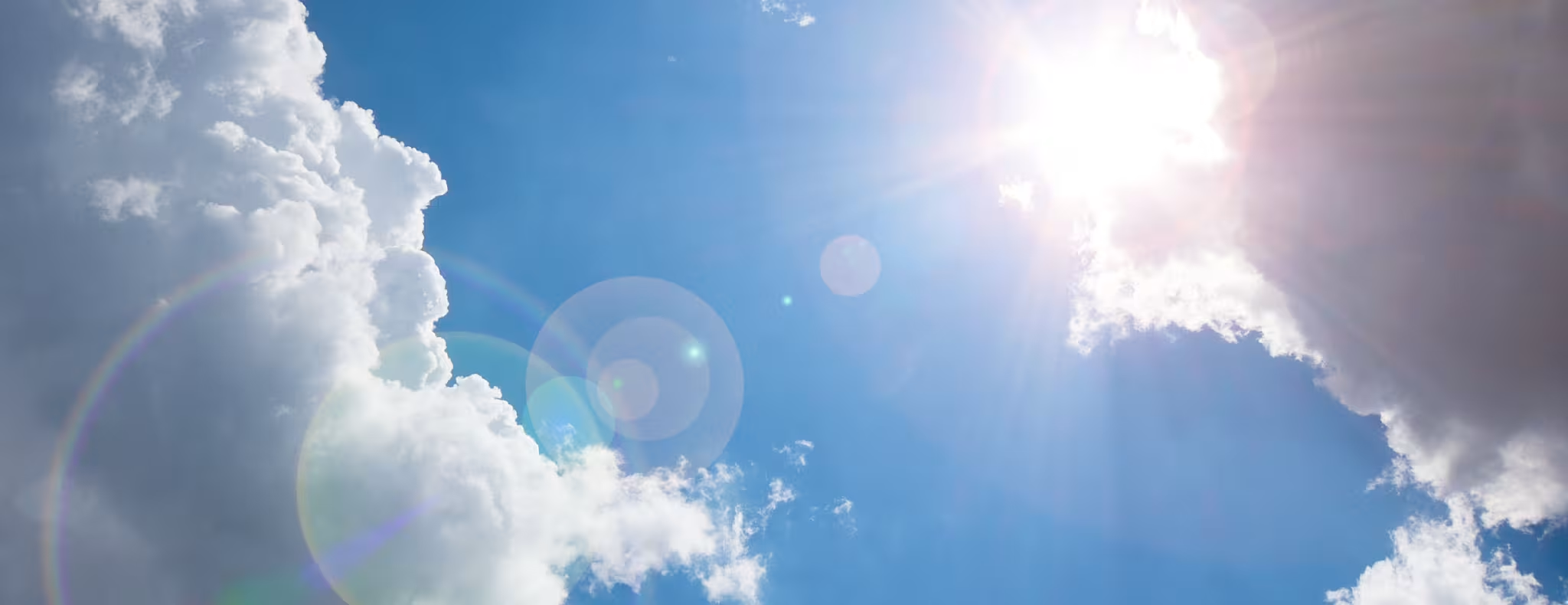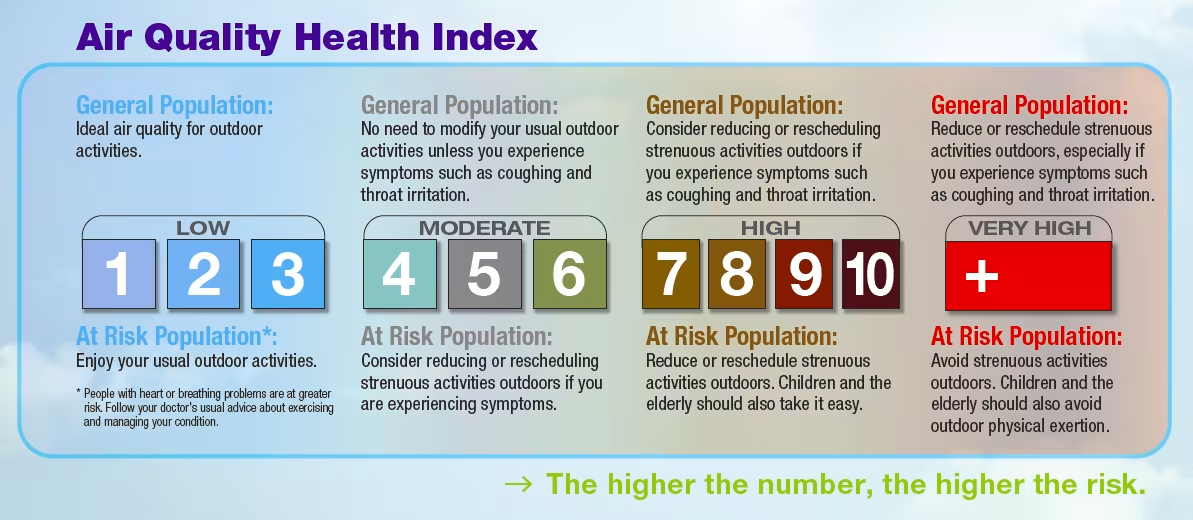
Outdoor Air Quality
Poor air quality can have negative health impacts, particularly on your heart and lungs, and may worsen many chronic diseases. Some people are more vulnerable to poor air quality including young children, the elderly, outdoor workers, sports enthusiasts and people with underlying respiratory and cardiovascular conditions.
How to monitor air quality
The Air Quality Health Index (AQHI) is a scale designed to help you understand what the quality of the air means to your health. The AQHI is a number from 1 to 10. The higher the number, the greater the health risk.

When a high AQHI is forecast, Environment Canada will issue an air quality alert. To lower your risk and know the potential health impacts, follow these tips:
- Check the AQHI forecast daily, especially from April to September.
- Sign up to receive air quality alerts.
- Download the WeatherCAN app to get the AQHI forecast
- Follow the advice provided for the AQHI number that is forecast
How wildfire smoke affects air quality
Smoke from wildfires can be a major source of air pollution. Wildfire smoke may be carried hundreds or thousands of kilometres from the fire. Some of the key factors that affect wildfire growth and spread are:
- Hot, Dry Weather: Hotter temperatures and dry conditions for an extended period make forests more flammable by drying out trees, leaves and twigs.
- Storms and Lightning: Warm temperatures can lead to more summer storms and lightning strikes, which often start wildfires.
- Windy Conditions: Strong winds help fires spread faster.
Air quality due to wildfire smoke can fluctuate over short distances and can vary considerably from hour to hour. Follow these tips to reduce your exposure to wildfire smoke, including:
- Monitor air quality alerts in your area so you can be prepared for changing conditions
- Limit outdoor activities and strenuous physical activities
- Learn how to create a clean room to protect indoor air quality
- Learn how to choose and use an air purifier to filter wildfire smoke
- Build a do-it-yourself air cleaner
- Wear a well-fitted respirator and know how to use it
Learn more about how to protect yourself from wildfire smoke:
